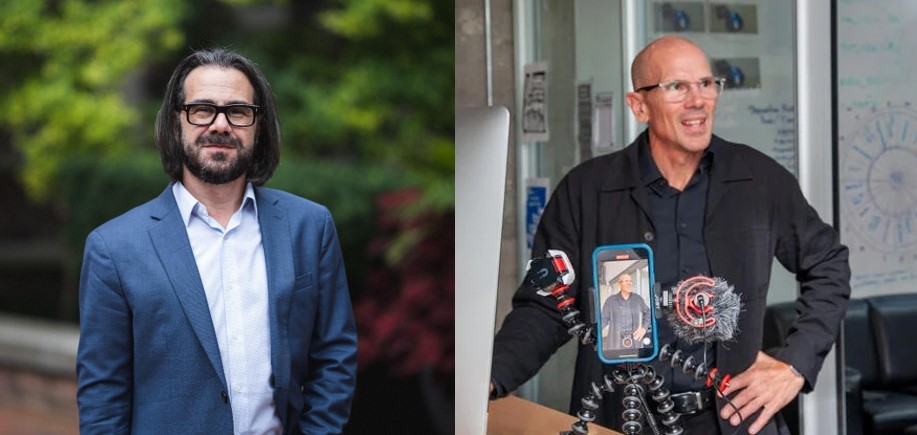Reimagining Generative AI Literacy in Higher Education

Event description
- Academic events
- Free
- Inclusion
- Science
- Sustainability
Since ChatGPT’s viral moment in November of 2022, post-secondary educators have been assessing the benefits and limits of generative AI technologies. At ASU, this work has taken a number of forms including faculty training modules, AI-focused curriculum and policy, university-wide conferences on the future of learning, grant competitions, and strategic partnerships with leading companies such as OpenAI. For all of the great work that is being done at ASU, there remains an opportunity to return to the basics of generative AI literacy, which are fundamental to the development of ethical educational policies and curricular practices. The purpose of this event is to discuss the basics of generative AI in detail so that we can propose alternative directions for 21st century postsecondary education.
Outcomes:
- Describe the core elements of generative AI technologies, focusing specifically on what educators need to know to develop a nuanced understanding of its operations.
- Address misconceptions about generative AI technologies in post-secondary education, focusing specifically on the dangers of building policy from them.
- Imagine alternative approaches to postsecondary education that are built from a foundational understanding of how generative AI works.
- Resituate the role of Humanities in generative AI research, focusing specifically on the value of play and creativity.
- Ian Bogost on An Inside look at the State of Affairs in AI 10:00am-11:10am
- Marcel O’Gorman on Art, Play, and AI 11:30am-12:40pm.
Distinguished Speakers:
Ian Bogost, Washington University in St. Louis
Dr. Ian Bogost is an author and an award-winning game designer. He is Barbara and David Thomas Distinguished Professor in Arts & Sciences, Director of Film & Media Studies, and Professor of Computer Science and Engineering at Washington University in St. Louis. Bogost is also Founding Partner at Persuasive Games LLC, an independent game studio, and a Contributing Editor at The Atlantic. He is the author or co-author of ten books including How to Do Things With Videogames and Play Anything. He holds a Bachelor's degree in Philosophy and Comparative Literature from the University of Southern California, and a Masters and Ph.D. in Comparative Literature from UCLA.
Marcel O’Gorman, University of Waterloo
Dr. Marcel O’Gorman is a University Research Chair, Professor of English, and Founding Director of the Critical Media Lab (CML), where he teaches courses, leads collaborative projects, and directs workshops in digital design and the philosophy of technology. He has published widely about the impacts of technology, including his books E-Crit and Necromedia and articles in Slate, The Atlantic, and The Globe and Mail. He is also a digital artist with an international portfolio of exhibitions and performances. This experience guides the creative hands-on methods espoused by the Critical Media Lab and outlined in detail in his most recent book Making Media Theory: Thinking Critically with Technology. O’Gorman’s most recent research looks at how critical and inclusive design methods might help tackle some of the moral and ethical issues faced by contemporary technoculture.
This hybrid event is hosted by Humanities Institute.